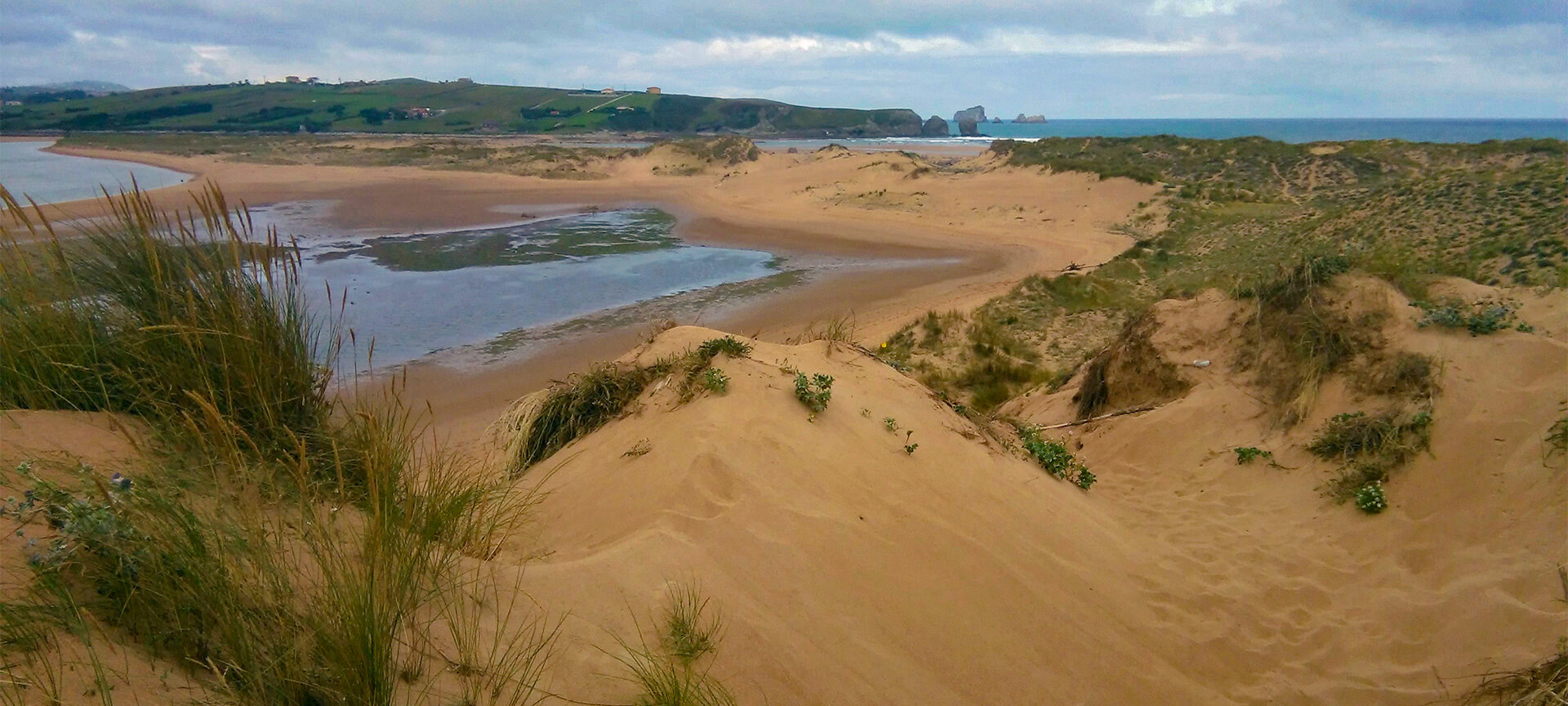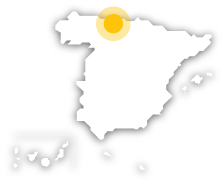
Dunes of Liencres and Costa Quebrada Natural Park

Dunes and rocks of the Cantabrian Sea
One of the largest systems of dunes on the northern coast of Spain, Liencres is home to a wealth of flora and fauna.
In addition to one of the most important dune enclaves on the Cantabrian coast, this park also includes the surrounding coast, part of the Costa Quebrada Geopark, as well as the nearby islets, the Pas River estuary and part of Mount Tolío. The result is a highly unique space given its great combination of attractions: scenic, geological, botanical and fauna.The dunes, which initially was almost the only area of the park, which was later extended, are located on the left bank of the mouth of the Pas, in a peninsular area bordered by the Mogro estuary and several adjoining beaches. The sandy mountains have gradually become consolidated by reforestation with maritime pine (Pinus pinaster) carried out there in the mid-20th century.The dunes and estuary are home to numerous species of aquatic birds, such as the great plover, the common sandpiper, the grey plover, the black-winged curlew and others that have chosen this area as a resting place on their migratory journey. There is also an impressive population of lizards, snakes and amphibians, such as the midwife toad and the three varieties of newts that exist in the region.With regard to the Costa Quebrada sector, certified as a Global Geopark by UNESCO in 2025, it consists of a stretch of coastline that reaches Mogro estuary. It is not only breathtakingly scenic, but also a veritable open-air laboratory where you can see geology in action. It is also a habitat for valuable colonies of seabirds.
Dunes of Liencres and Costa Quebrada Natural Park
Cantabria (Cantabria)
Cantabria (Cantabria):
- Miengo
- Piélagos
- Santa Cruz de Bezana
Activa JS
What you need to know
-
Cultural information
All along the Cantabrian coastline, the towns and villages are home to a rich and varied artistic and cultural heritage. For example, the beautiful capital of Cantabria, Santander is only 20 km away from the area with the dunes, the part of the park that is furthest away from the city.
-
Environmental information
The Liencres dunes are located at the mouth of the Pas River (Ría de Mogro) and are one of the most ecologically interesting sites on the Cantabrian coast. In addition, this part of the Costa Quebrada of Cantabria has been certified globally by UNESCO.
-
Information for visits
The CA-231 road runs parallel to this entire coastline and from it you can take detours to the most prominent points of the cliffs or to the Liencres dunes themselves; the latter is 6 km along the CA-305, which reaches the sea from the aforementioned CA-231. The Geopark has its central office on Marqués de Valdecilla Avenue in the town of Soto de la Marina (39110), a hamlet of Santa Cruz de Bezana.


